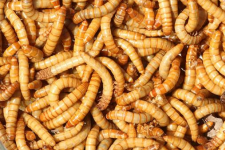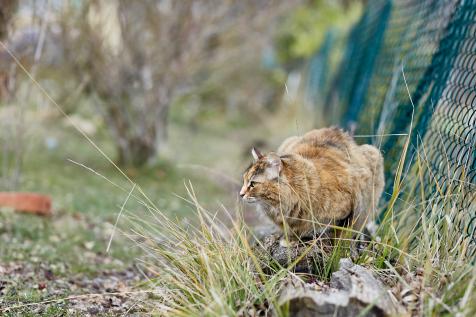Gastro cat: Assessment of the digestive tolerance in cats of a new diet based on insects as the protein source

Introduction
Insects may be an alternative source of protein for animal nutrition and could represent a “novel” protein source for managing adverse food reactions. Publications describe the high-quality nutritional profile of selected insect species, but there is little data on the tolerance of insect-based diets.
Animals, materials and methods
Twenty-three healthy adult client-owned cats were recruited and monitored for 28 days. After a 4-day diet transition, they were fed exclusively with the new diet (Table 1). This diet was formulated to meet FEDIAF requirements for adult cats and was characterized by mealworm (Tenebrio molitor larvae) as the protein source. Owners filled in online questionnaires on D0 (basal assessment with usual diets), D7, D14 and D28. To evaluate tolerance of the diet, 4 parameters were assessed (Table 2). Owners also evaluated coat condition and palatability on D28. Wilcoxon signed rank and Mc Nemar’s tests were used to compare results, with a 5% significance level.

Results
The tolerance of the test diet was high, with no significant changes vs usual diets. Mean faecal scores varied from 2.3±0.5 on D0 to 2.2±0.4 on D28 and none of the cats developed diarrhoea (highest scores: 3.5 in 2 cats on D7). Table 3 shows percentages of normal cats on D0 and D28 for each digestive parameter. At the end of the trial, palatability was described as good or very good by 74% of owners. Coat condition was unchanged, improved or degraded in 70, 26 and 4% of cats respectively.


